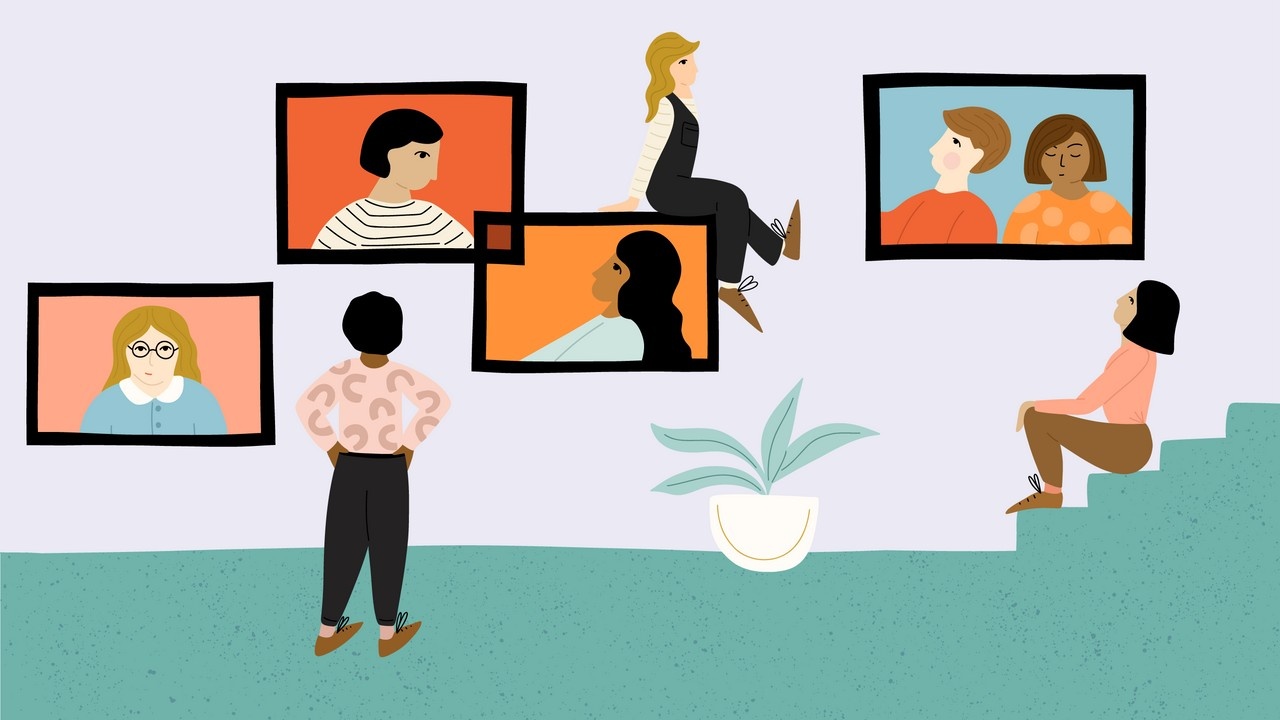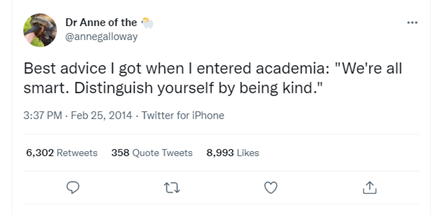Learning with and through community
Jun 06, 2022
Kieran Forde writes about the importance of community to his learning experience as a PhD and invites readers to participate in our research study.
During fall 2019, in the first semester of my PhD program, our cohort spent a good deal of time together, both in discussion in class and informally outside of class time. It was engaging to get to know this diverse group, coming from different cultures and academic backgrounds. It was also an exciting time for us as we embarked on our PhD journey, building connections within our cohort and with others across campus. In March 2020, when our university “pivoted” to online learning as a result of the pandemic, it seemed like many of these connections were severed or, at least, put on pause.
Like many other students, I struggled with this sense of disconnection. What had we lost in this transition to online learning? Most obviously, the regular contact that students used to have with other students, staff, or instructors suddenly disappeared; no more serendipitous encounters in the hallways, no more chances to cross a room and pick someone’s brain about something you were reading, no more community or camaraderie. For many, the sense of isolation from their learning community was extremely challenging. The concept and importance of connectivity became central, in the technical sense, in terms of connecting with our own Zoom-fatigued bodies, but also in connecting with other people who could help to motivate and inspire us.
During this time, I started having “silent Zoom” study sessions with some other students. We would meet, check in, mention what we planned to do, and then mute ourselves and get down to work. It felt odd at first, but looking up at the screen and seeing others working away diligently created a sense of accountability that kept me on task. I also scheduled regular check in meetings on Zoom with my supervisor and other mentors, and I tried to attend relevant online workshops where I could connect with new people. Even so, I still missed bumping into people in hallways or just hanging out in the grad space and chatting about courses, readings, conferences, and the progress we were making.
Now that we have returned to teaching and learning in person, I am even more conscious of how important my community was in sustaining me since the beginning of the pandemic. It can be challenging enough at the best of times to stay motivated as a PhD student, given the various draws on our time and attention. Being part of a learning community that is working towards a similar goal, who we can go to for advice, encouragement, or simply to vent, is an invaluable part of our PhD learning experience.
So, how do we create learning communities that offer participants the agency to thrive? I could try to answer this but, in truth, I would only be able to offer my perspective: I can’t answer it alone. To truly answer the question, I would need to discuss this with others; to have my perspective heard, to listen to others and to collectively create an understanding that works for us. In the same way, I cannot complete my PhD alone, but as an engaged member of a community of scholars, I can make progress. I see my community as a sort of well that I can draw from when I need to and contribute to as I can.
My studies have helped me find agency within myself, as I reassessed my subjective formation and a growing awareness of my capacity for self-validation. Still, I also feel the need to be part of a community within which I can grow. Underlying this, is a message from a Tweet I often refer people to:
Best advice I got when I entered academia: "We're all smart. Distinguish yourself by being kind."
Beyond the obvious message (curb that ego!), there is the etymological significance of “kind” and the relationship to kin / family. In as much as “it takes a village to raise a child”, it takes more than a supervisor / committee / handful of professors to guide and encourage a student through to graduation.
"We need to be and feel part of a community within and through which we can find that for which we are best suited."
I am fortunate to have become part of an initiative that inquires into the importance of agency among PhD students/recent graduates. In the Beyond the Academy research study, Hikma Strategies and the ALIVE Lab at UBC are gathering insight from professional learners who have valuable lived experience of the importance and impact of supportive learning communities. Our study presents opportunities to pool the diverse perspectives and understandings of how agency is created and promoted within cohorts and communities of practice and how this agency can help to open up new professional pathways for graduate students.
Interested in sharing your insights? Take our survey to help us explore the experiences of professional agency and community for current PhD students and people who have received PhD degrees in the past 10 years.
Take the Survey
Beyond the Academy is a research partnership between Hikma and the University of British Columbia funded by the Social Sciences and Humanities Research Council of Canada. Visit the ALIVE Lab website https://alivelab.ca/project/beyond-the-academy/ to learn more about the project and the research team.
Kieran Forde is a PhD candidate in the Department of Curriculum & Pedagogy at the University of British Columbia. His research interests focus on the intersection of technology, ethics, and policy, including teacher professionalism, informational privacy, online identity, and the right to be forgotten.
Disclaimer: All views and opinions expressed are those of the authors and do not reflect the official policy or position of any other agency, organization, employer, or company, including but not limited to Hikma.
Explore the Hikma Collective
Stay connected with news and updates!
Enter your information to receive resources, tips, and updates about our programs.
Don't worry, your information will not be shared.
We will never sell your information, for any reason.



